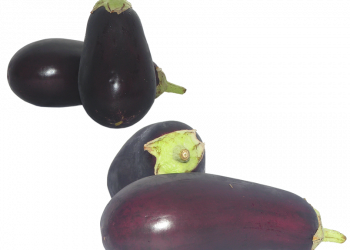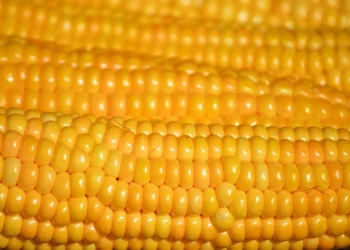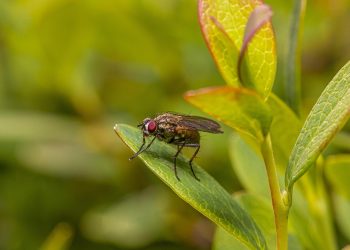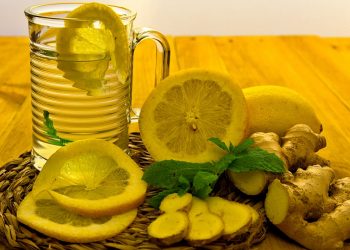Ocular superfood diet is a nourishing plan built around foods that protect and restore your vision. It’s about stacking your plate with the vitamins, minerals, and fats that the eyes actually use. This matters because your sight shapes your days—your morning coffee, a child’s face, the page of a book. If you feed your eyes well, they’ll repay you with clarity, resilience, and less risk of disease.
Contents
- Ocular Superfood Diet: What It Means For Your Eyes
- 1. Feed the Retina With Lutein and Zeaxanthin
- 2. Reduce Inflammation With Omega-3 Fats
- 3. Protect With Vitamins C and E
- 4. Strengthen The Lens With Zinc And Selenium
- 5. Build Eye Resilience With Carotenoids And Beta-Carotene
- 6. Hydrate And Support Tear Film With Electrolytes
- 7. Stabilize Blood Sugar To Protect Small Blood Vessels
- Putting The Ocular Superfood Diet Into Action
- Common Questions People Ask About This Diet
- Bottom Line
Ocular Superfood Diet: What It Means For Your Eyes
The term ocular superfood diet names a simple idea: choose foods proven to support eye structure and function. Think leafy greens, oily fish, brightly colored fruits, nuts, and eggs. These foods deliver lutein, zeaxanthin, omega-3s, vitamin C, vitamin E, zinc, and carotenoids—nutrients that nourish the retina, reduce inflammation, and protect against light damage.
Nutrition experts and eye doctors point to robust evidence. The Age-Related Eye Disease Study from the National Eye Institute and analyses published in journals from leading universities show real links between diet and reduced risk of macular degeneration and dry eye. When you read about the ocular superfood diet, you’re not reading a trend. You’re reading a plan rooted in science.
1. Feed the Retina With Lutein and Zeaxanthin
Your retina is the workhorse of vision. Lutein and zeaxanthin sit in the macula and act like natural sunglasses, filtering harmful blue light and reducing oxidative stress. A diet rich in kale, spinach, and corn increases macular pigment density and can slow the progression of age-related macular changes.
Add a cup of cooked spinach or a handful of kale to a meal every day. Studies from university medical centers show measurable benefits in people who consistently consume these vegetables. It’s not complicated: eat these foods and you fortify the very cells that translate light into sight.
Practical Tip: Make Greens Irresistible
Sauté greens in extra virgin olive oil and garlic. Toss them with citrus and toasted almonds. The fats help absorb fat-soluble nutrients, and the flavor makes you keep coming back.
2. Reduce Inflammation With Omega-3 Fats
Omega-3 fatty acids are anti-inflammatory powerhouses that support tear production and retinal cell health. Oily fish like salmon and sardines, as well as chia and flax seeds, are staples of the ocular superfood diet and help reduce the risk of dry eye and some retinal conditions.
Major eye health organizations highlight omega-3s when advising patients with chronic dryness or inflammation. Eating fish twice a week or using a high-quality fish oil supplement, after consulting your doctor, does more than support your heart—it supports your vision.
How To Add Omega-3s Without Fuss
Bake salmon with citrus and herbs, add chia seeds to yogurt, or blend flax into smoothies. Small swaps add up to consistent benefits.
3. Protect With Vitamins C and E
Vitamins C and E are antioxidants that protect eye tissues from free radical damage. Citrus fruits, berries, bell peppers, nuts, and seeds should be regulars on your plate when you’re committing to an ocular superfood diet.
Clinical trials and reputable eye research indicate that these vitamins, especially when combined with other nutrients, slow the progression of degenerative eye conditions. That’s real prevention, not guesswork.
Snack Smart To Boost Antioxidants
Keep a small bowl of mixed berries and almonds within reach. It’s a snack that protects your lens and retina while satisfying hunger.
4. Strengthen The Lens With Zinc And Selenium
The lens needs zinc and selenium to repair damage and maintain clarity. Oysters, beef, eggs, and pumpkin seeds are rich sources. Incorporating these into your meals supports the biochemical reactions that keep your vision sharp.
University research points to zinc’s role in transporting vitamin A from the liver to the retina, which makes it crucial for night vision and overall retinal health. The ocular superfood diet focuses on including these minerals in balanced, food-first ways.
Meal Idea: Zinc-Rich Dinner
Grill a lean steak, serve it with roasted pumpkin seeds tossed into a side salad, and finish with a citrus segment for vitamin C.
5. Build Eye Resilience With Carotenoids And Beta-Carotene
Carrots earned their reputation for a reason. Beta-carotene, a precursor to vitamin A, supports the cornea and overall eye function. Sweet potatoes, carrots, and orange peppers are easy, tasty sources you can rely on.
Carotenoids protect cells from light-induced damage. Incorporating a rainbow of colored vegetables into your diet ensures you’re delivering a spectrum of protective pigments straight to your eyes.
Daily Color Plan
Aim for three colors on your plate: a leafy green, an orange vegetable, and a bright fruit. The color code is your quick shopping list for carotenoids.
6. Hydrate And Support Tear Film With Electrolytes
Your tear film needs fluid and electrolytes to lubricate the eye surface. Hydration, plus foods like cucumbers and watermelon, and minerals such as potassium found in bananas, support tear production.
Clinical reports from ophthalmology clinics show diet and hydration play roles in symptom relief for people with dry eye. The ocular superfood diet includes simple hydration strategies alongside nutrient-dense eating.
Hydration Habit
Start each day with a tall glass of water, and include hydrating foods with every meal. Carry a water bottle and sip slowly—the eyes notice the difference.
7. Stabilize Blood Sugar To Protect Small Blood Vessels
High blood sugar damages small blood vessels in the retina. The ocular superfood diet emphasizes low-glycemic carbs, fiber, and lean proteins to keep glucose levels steady and protect microvasculature.
Hospitals and diabetes specialists recommend dietary changes as a frontline defense against diabetic retinopathy. By eating balanced meals, you reduce the stress on the tiny vessels that feed your retina.
Plate Composition For Stable Vision
Fill half the plate with vegetables, a quarter with lean protein, and a quarter with whole grains or starchy vegetables. That structure keeps blood sugar calm and your retinal vessels safer.
Putting The Ocular Superfood Diet Into Action
Start with a three-day audit. Write down everything you eat and spot where the eye-supporting nutrients are missing. Replace one processed snack with a handful of nuts or a piece of fruit. Swap a refined carb for a whole grain. Make fish or a plant-based omega-3 meal your goal twice a week. These small, consistent shifts compound into measurable gains.
Invite an eye doctor to the conversation. When your ophthalmologist or optometrist sees your food plan and values the change, you create a team for long-term vision health. Trusted sources like the National Eye Institute and the American Academy of Ophthalmology provide patient-friendly guidance that meshes with the ocular superfood diet approach.
Common Questions People Ask About This Diet
Most people wonder if they need supplements. Food first is the rule, but supplements can fill gaps. Evidence supports targeted supplementation for those with diagnosed risk factors, and your eye doctor can recommend doses based on trials and clinical guidelines.
Another frequent worry: will this diet prevent all eye disease? Nothing is guaranteed. But adopting the ocular superfood diet reduces risk, improves eye comfort, and supports vision long-term. That’s a practical, hopeful payoff.
Bottom Line
The ocular superfood diet gives you a clear plan: prioritize lutein-rich greens, omega-3s, antioxidants, minerals, colorful vegetables, hydration, and blood-sugar stability. Those choices protect the retina, support tear film, and reduce degeneration risk. You don’t need a radical overhaul—just steady, sensible swaps, and a commitment to feeding your eyes what they need.
You can start today and feel better within weeks. Keep going, and the long-term benefits for your vision can be profound.
FAQ
Do I need to take supplements if I follow the ocular superfood diet?
Supplements can help if blood tests or your eye specialist identify deficiencies. Many clinical trials use specific supplement formulas to slow macular degeneration, but food-first is the preferred approach for most people.
How long before I notice improvements after switching to an ocular superfood diet?
Some benefits, like reduced dry eye symptoms, can appear in weeks. Structural protection—lower risk of macular decline—shows up over months and years. Think of this as an investment in decades of better sight.
Can children follow the ocular superfood diet?
Yes. Building habits early gives children a strong foundation for lifelong eye health. Focus on colorful fruits, vegetables, and healthy fats and keep sugary snacks limited.
Is the ocular superfood diet compatible with other medical diets?
Usually yes. Many of the foods are flexible and fit into heart-healthy, diabetic, and Mediterranean-style plans. If you have specific conditions, coordinate with a registered dietitian or your physician.
References
The National Eye Institute provides information on diet and eye health at (http://www.nei.nih.gov).
Harvard Health Publishing discusses omega-3s and eye health and offers practical advice at (https://www.health.harvard.edu).
The American Academy of Ophthalmology gives patient guidance on nutrition and eye disease at (https://www.aao.org).
The Age-Related Eye Disease Study (AREDS) findings are summarized by the National Institutes of Health at (https://www.nih.gov).
The Centers for Disease Control and Prevention offers resources on diabetic eye disease prevention at (https://www.cdc.gov).
Get Your FREE Natural Health Guide!
Subscribe now and receive our exclusive ebook packed with natural health tips, practical wellness advice, and easy lifestyle changes — delivered straight to your inbox.














